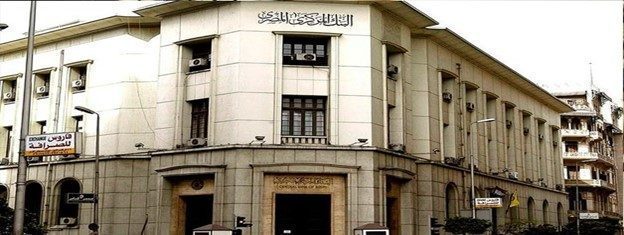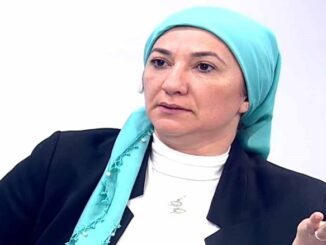
Egypt kept interest rates unchanged for a second month, waiting to secure the foreign exchange needed to manage the currency devaluation that would likely accompany its next bout of monetary tightening.
The Monetary Policy Committee maintained the deposit rate at 18.25% and the lending rate at 19.25%, it said Thursday in a statement. All but three of 15 economists surveyed by Bloomberg correctly predicted the decision, with the rest forecasting a hike of 50-100 basis points, according to Bloomberg.
A hold makes sense “until the foreign-exchange situation gets resolved,” Mohamed Abu Basha, head of macroeconomic research at Cairo-based EFG Hermes, said before the announcement.
Cash-strapped Egypt is racing to secure buyers for dozens of state assets, with Goldman Sachs Group Inc. estimating authorities need more than $5 billion for an “orderly transition to a unified, market-clearing exchange rate.”
Egypt has devalued its pound three times since early 2022 and secured a $3 billion deal with the International Monetary Fund after pledging a shift to what it called a “durably flexible” exchange-rate regime.
While the currency has remained stable at around 30.9 per US dollar for months at the nation’s banks, its value has fluctuated in the local black market where it currently changes hands at about 38.
The latest rate pause comes despite a pick-up in inflation to 32.7% in May, the fastest since 2017. The central bank targets price growth of 7%, plus or minus 2 percentage points, by the fourth quarter of next year.
Central bank Governor Hassan Abdalla earlier this year suggested higher rates could do little to contain price growth that he described as stoked mainly by supply issues.
The government has said tackling inflation is a top priority. President Abdel-Fattah El-Sisi last week warned about the impact of currency devaluations on rising prices, saying the nation of over 100 million won’t be able to tolerate much more weakening of the pound.
Households and corporates are already “squeezed” by higher inflation and rate hikes may just pile on yet more pressure, according to Monica Malik, chief economist at Abu Dhabi Commercial Bank PJSC.
The costs of a weaker pound are adding up, with annual inflation hitting 32.7% in May to reach the fastest since 2017. Central bank Governor Hassan Abdalla has signaled higher rates could do little to contain price growth that he described as stoked mainly by supply issues.
Abdel-Fattah El-Sisi also chimed in with a warning about the impact from currency devaluations on rising prices, saying the nation of over 100 million won’t be able to tolerate too many more hikes.
Authorities have to be mindful of the risks because the steep rise in the cost of living helped trigger the Arab Spring uprisings a little over a decade ago.
Even after an inflation pickup last month, the central bank may still opt to keep rates on hold until the “foreign-exchange situation gets resolved,” said Mohamed Abu Basha, head of macroeconomic research at Cairo-based EFG Hermes.



